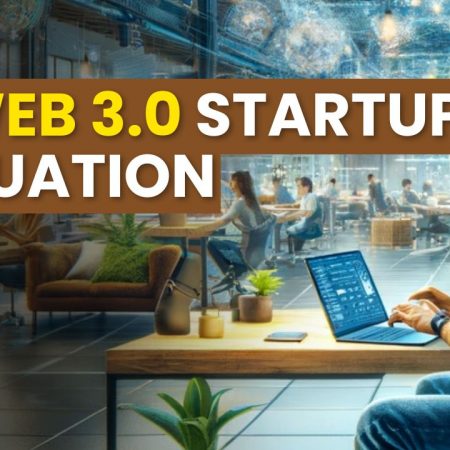In the shimmering world of AI startups, valuation often feels like a high-stakes game of deciphering cryptic codes. As an investor or entrepreneur, you might find yourself grappling with the question: How do we value a pre-revenue AI startup? Unraveling the business model of a pre-revenue AI startup is a critical step in understanding its potential for success and AI startup valuation process. Here are some key components of a typical AI startup’s business model:
Problem-Solution Fit
At the heart of every AI startup is a problem that needs solving. The startup’s AI technology is the solution. In understanding this problem-solution fit, you can gauge the demand for the startup’s offering and its potential market size.
Technology and Intellectual Property
AI startups often base their business model on proprietary innovative technology or intellectual property. This could be a novel algorithm, a unique dataset, or a disruptive application of AI. The defensibility of this technology against competitors is a significant factor in the startup’s business model.
Monetization Strategy
How does the startup plan to generate revenue once it’s past the pre-revenue stage? Common monetization strategies for AI startups include SaaS (Software as a Service), transaction fees, licensing technology, or selling data. The scalability and profitability of the monetization strategy greatly influence the valuation of the startup.
Growth Strategy
AI startups often operate in fast-moving markets, so a robust growth strategy is crucial. This could involve strategies for acquiring customers, penetrating new markets, or developing new products.

The traditional approach of startup valuation, anchored in metrics like earnings or revenue multiples, may seem ill-suited for AI startups in their pre-revenue phase. After all, how does one calculate multiples when the denominator—revenue or profit—is practically zero? Yet, startups that operate in the realm of artificial intelligence are not your typical businesses. They are vessels of innovation, constantly pushing the boundaries of what’s possible. Their valuation, thus, extends beyond mere numbers and ventures into the territory of potential and promise, which is similar to the process of patent valuation.
One popular approach to valuing pre-revenue AI startups is the venture capital (VC) method. This method involves projecting a startup’s revenues in about five years, estimating the earnings multiple at exit based on industry comparable, and discounting the projected exit value back to the present using a high discount rate, typically 30-50%.
Generative AI startups, which utilize AI to create new and novel outputs, such as art, music, or even entirely new business models, pose a unique challenge. The unpredictable nature of their outputs and the novelty of their technology often defy conventional valuation models. The valuation of these types of startups often leans heavily on the scorecard valuation method. This method involves comparing the startup to other similar startups that have recently been funded, and adjusting the average valuation of these comparable companies based on a variety of factors like the strength of the management team, size of the market, technology, and stage of business.
In the case of more established AI companies, valuation multiples become a more viable valuation strategy. This approach is particularly common in M&A transactions or later-stage funding rounds. However, it’s important to remember that AI companies aren’t typical software companies. The AI company valuation multiples tend to be higher than their software counterparts. This is due to factors like the strategic value of AI technology, its scalability, and the high growth rates often seen in the AI sector.
Valuing a pre-revenue AI startup can seem like navigating a labyrinth, but it doesn’t have to be a perplexing endeavor. Here’s a step-by-step guide to bring some method to the madness.
Understand the Technology
Before diving into numbers, take a step back and understand the core technology of the AI startup. What problem does it solve? How innovative is it? Is it defensible against competition? Grasping the technology will help gauge the startup’s potential for disruption and competitive advantage—key factors in determining its valuation.
Evaluate the Team
In the early stages of a startup, the team’s capabilities are often the greatest predictor of success. Examine the team’s background, skills, and track record. A team with experience in the startup’s industry, a proven ability to execute, and a passion for their vision can significantly boost a startup’s valuation.
Analyze the Market
Look at the size and growth rate of the market that the startup is targeting. Is the market large enough to support a high-value company? Is it growing rapidly? A large and fast-growing market can justify a higher valuation for a startup.
Calculate Future Revenues
For pre-revenue startups, the Venture Capital Method is often used for valuation. This requires estimating future revenues. Using industry comparable and market growth rates, project the startup’s revenues for the next five years.
Determine the Exit Multiple
Based on industry comparable, estimate the earnings multiple at which the company might be sold in the future. For AI startups, this multiple is often higher than for traditional businesses due to the strategic value and scalability of AI technology.
Discount to Present Value
Using a high discount rate (usually between 30-50% for startups due to their risk), discount the projected exit value back to the present.
Adjust for Risk
Finally, adjust the valuation for the unique risks associated with the startup. These might include technology risks, market risks, team risks, and execution risks. This step is more of an art than a science and requires a deep understanding of the startup and its environment.
Following these steps can provide a structured approach to valuing pre-revenue AI startups. However, remember that startup valuation is as much an art as a science—subjective factors often play a significant role. Hence, it’s crucial to remain flexible and adapt your approach as necessary. After all, in the ever-evolving world of AI, being able to adapt is the key to success.
Engaging with an AI consultant can be invaluable when it comes to understanding the intricacies of AI startup valuations. They can provide a nuanced perspective on the business model, the technology, and its potential impact. Their expertise can help you navigate the complex terrain of AI valuations, ensuring that you make informed decisions. Remember, in the dynamic world of AI startups, valuations are as much an art as they are a science. They demand a deep understanding of the technology, the market, and the potential for disruption. As we continue to push the boundaries of what AI can do, the methods for valuing these companies will undoubtedly evolve, just like the technology itself. Now, the question remains: Are you ready to decipher the code? The code of AI startup valuation and embark on a journey to understand the true potential of these innovative ventures?
Click Here for AI Startup Valuation Guide.
It is also vital to consider recent trends and developments in the world of AI startups when contemplating their valuation. These trends often provide insights into the future trajectory of the market, influencing the perceived value of these startups. For instance, there has been a surge in interest in AI startups from traditional venture capital firms and corporate investors alike, a testament to the growing recognition of the transformative potential of AI. This increased interest has had a direct impact on the valuation of AI startups, driving up their value.
Moreover, as the technology matures, we’re beginning to see a wider array of applications for AI, opening up new markets and creating new revenue streams for AI startups. This diversification of applications is another key factor influencing the valuation of AI startups.
In the end, valuing an AI startup is a complex process that involves considering a multitude of factors, from the strength of the team and the novelty of the technology to market trends and potential future revenues.
Understanding these intricacies can help investors and entrepreneurs alike make more informed decisions, reducing the risks associated with investing in these high-potential yet high-risk ventures.
In this dynamic, fast-paced world of AI startups, being able to accurately value a company can be the difference between success and failure. So, as we continue to push the boundaries of what’s possible with AI, let’s also continue to refine and improve our methods for valuing these pioneering companies.

As a business coach and thought leader, I cannot emphasize enough the importance of innovation, new software patents, mobile apps, and patents for tech companies, startups, and entrepreneurs. The world is rapidly evolving, and staying ahead of the curve is vital for success. Embracing technological advancements such as blockchain and AI can unlock unprecedented opportunities, streamline operations, and propel businesses into the future with competitive valuation via intangible assets.
Click Here for AI Startup Valuation Guide.
For instance, blockchain technology can revolutionize supply chain management and secure data sharing wherein innovative business models are explained to the audience via technical whitepapers, while AI can automate and optimize decision-making processes. Mobile apps are no longer just a luxury; they have become essential tools for engaging customers and offering personalized experiences. Furthermore, securing digital innovation patents is crucial for protecting intellectual property, fostering innovation, and maintaining a competitive edge. By investing in these areas, businesses can position themselves as industry pioneers and pave the way for a prosperous future after thoroughly conducting the due diligence and reviewing the legal opinion letters, which in case of digital assets can assist in determining the tokens as utility assets or coins as utility tokens before listing the assets at an exchange.
Our team of advanced patent attorneys assists clients with patent searches, drafting patent applications, and patent (intellectual property) agreements, including licensing and non-disclosure agreements. Advocate Rahul Dev is a Patent Attorney & International Business Lawyer practicing Technology, Intellectual Property & Corporate Laws. He is reachable at rd (at) patentbusinesslawyer (dot) com & @rdpatentlawyer on Twitter.
Quoted in and contributed to 50+ national & international publications (Bloomberg, FirstPost, SwissInfo, Outlook Money, Yahoo News, Times of India, Economic Times, Business Standard, Quartz, Global Legal Post, International Bar Association, LawAsia, BioSpectrum Asia, Digital News Asia, e27, Leaders Speak, Entrepreneur India, VCCircle, AutoTech).
Regularly invited to speak at international & national platforms (conferences, TV channels, seminars, corporate trainings, government workshops) on technology, patents, business strategy, legal developments, leadership & management.
Working closely with patent attorneys along with international law firms with significant experience with lawyers in Asia Pacific providing services to clients in US and Europe. Flagship services include international patent and trademark filings, patent services in India and global patent consulting services.
Global Blockchain Lawyers (www.GlobalBlockchainLawyers.com) is a digital platform to discuss legal issues, latest technology and legal developments, and applicable laws in the dynamic field of Digital Currency, Blockchain, Bitcoin, Cryptocurrency and raising capital through the sale of tokens or coins (ICO or Initial Coin Offerings).
Blockchain ecosystem in India is evolving at a rapid pace and a proactive legal approach is required by blockchain lawyers in India to understand the complex nature of applicable laws and regulations.